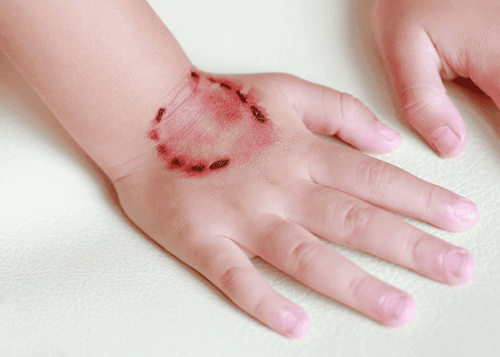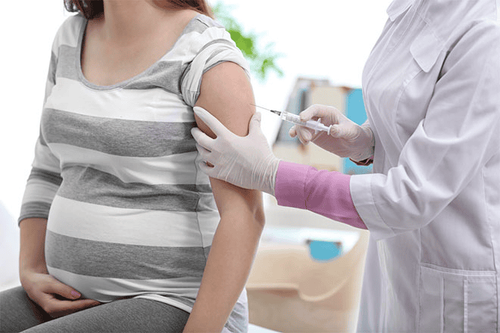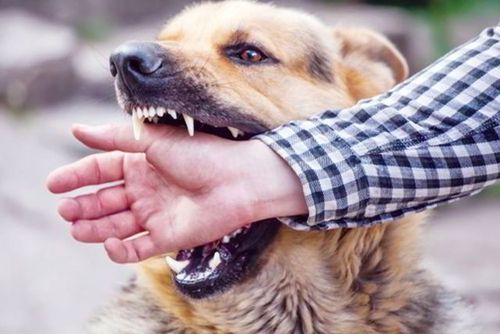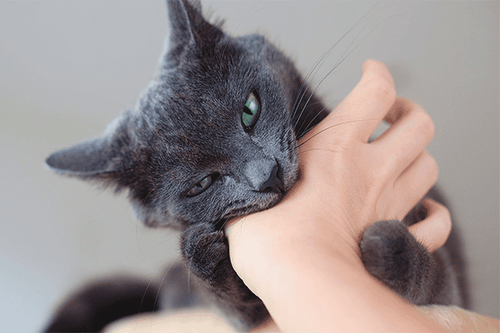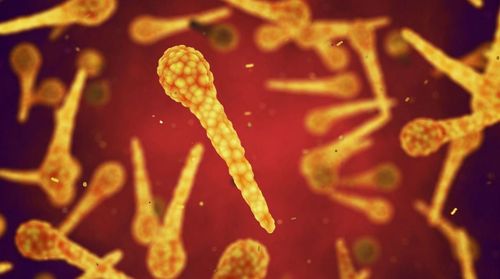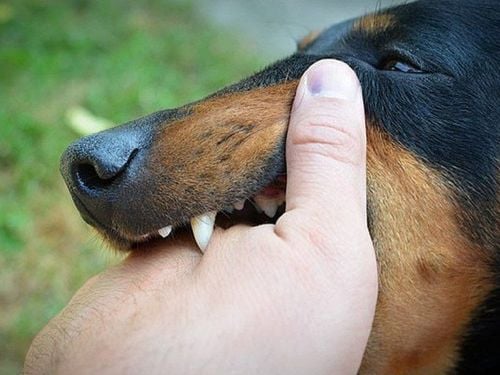This is an automatically translated article.
According to statistics, children are the main victims of cat and dog bites. The consequences were severe injuries, especially in the head and neck areas of boys under 4 years old. Therefore, the initial management and prevention of animal bites are very important.
1. Handling when a child is bitten by an animal
Treatment and first aid steps depend on the severity of the injury. Specifically:
If it is only a minor injury, like a skin scratch, carefully wash the bitten area with soap and water. Then apply antibiotic ointment twice a day. Cover the wound with tape if the bitten part of your body gets dirty easily, for example the bottom of your foot. Conversely, allow the wound to be exposed to natural air. Wounds are considered serious when there is laceration and bleeding. Parents need to put a clean gauze or cloth on the baby's wound and press it with their fingers. If this pressure isn't enough to stop the bleeding for a few minutes, take your baby to a medical facility for urgent care. It is especially dangerous when a child is bitten on the face or neck by an animal, because it can cut large blood vessels. Even if the bleeding stops, it's still a good idea to take your baby to the doctor early to determine if stitches or other medical treatment are needed. Children who have been bitten by an animal are more susceptible to infection than other types of wounds, so your doctor may prescribe a course of antibiotics.

Trẻ bị động vật cắn dễ bị nhiễm trùng hơn các loại vết thương khác
2. Risk of rabies when children are bitten by animals
Most dogs and cats in the United States are vaccinated against rabies so they do not carry the virus, but in the context of our country, this is not guaranteed.
If you know the owner of the animal that bit the baby, ask them for proof that the animal has been vaccinated. You can also contact your local veterinary clinic for verification, if necessary. In case you don't know who the animal's owner is, or the animal is acting strangely (like foaming at the mouth), try to track it down, but don't get too close. Call the local authorities to catch it. Veterinary authorities may examine the animal for signs of rabies. If you don't know the animal and can't track it, or can't verify that it's been vaccinated against rabies, your child may need a series of rabies shots, just in case the animal does not. sick. In addition to unvaccinated dogs and cats, wild animals - such as raccoons, skunks, foxes, wolves and bats - can carry rabies. If your child has been attacked by a wild animal, take him or her to the doctor immediately. Your baby will need a series of shots against rabies if the doctor suspects a risk of infection.
Note, children can get rabies from a bat bite or a very small bite - so much so that you can't even detect it. For this reason, it's important to see a doctor if your baby has touched a bat, or if you discover bats in your baby's habitat, including at a campsite or outdoor playground.
Small domestic animals - such as guinea pigs, hamsters, bugs and guinea pigs, do not carry rabies. However, bites from these animals can cause infection. Small wild animals - such as kangaroos, mice, rats, chipmunks, rabbits and squirrels - are considered low risk for rabies.
Recommended video:
Rabies symptoms in humans and how to prevent it
3. Other infections
Although rabies is the problem that worries you most when a child is bitten by a dog in particular or attacked by other animals in general, bacterial infections are much more common. Therefore, it is important to wash the injured area thoroughly and apply an antibiotic ointment.
If the wound is severe or the wound is mild but in a place where there is a high risk of infection - like your baby's face, hands, feet or genital area, the doctor may need to prescribe antibiotics.
For any wound, small or large, your child may need a tetanus shot if he hasn't been vaccinated before. Parents must also monitor their child's wound for several days, even if it's just a skin wound, and treat it at home.
Recommended video:
Schedule of tetanus vaccination for pregnant mothers and children
Take the child bitten by an animal to the doctor immediately if:
The wound begins to become infected (with signs: red). , swelling or discharge) Baby starts to have a fever or is sick The bite doesn't heal for 10 days.
4. Preventing children from being bitten by animals
In young children, you need to pay attention to protect them from animal bites. Never leave your baby alone with your pet or anyone else's. Nearly half of children are bitten by a dog by a family or neighbor's dog. Don't forget that any dog or cat - even a familiar pet in the house - can bite people if provoked. Meanwhile, a child is more likely to pull the animal's tail or tease it roughly.
As children get older, you can teach them the basics of avoiding animal bites. It is necessary to teach children to avoid contact with foreign animals, if encountered, quietly hide or stay defensive; Do not scream, run or hit the animal. For pets in the house, do not tease or disturb them excessively, or act rough or provocative to the animal. Parents must constantly supervise children when playing with pets or playing outdoors, to avoid the risk of the baby being bitten by a very dangerous snake.
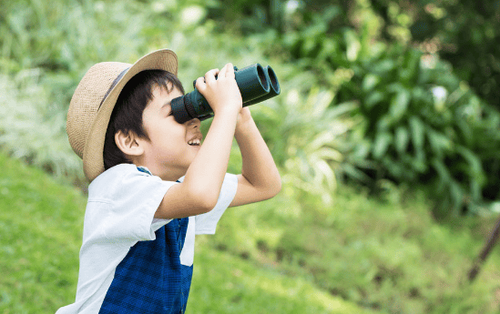
Cha mẹ cần giám sát trẻ liên tục khi con chơi cùng thú cưng hoặc chơi ngoài trời
Children who do not eat properly are at risk of micro-mineral deficiency causing anorexia, growth retardation, malabsorption,... If they notice the above signs, parents should supplement their children with products. The supplement contains lysine, essential micro-minerals and vitamins such as zinc, chromium, selenium, and B vitamins to help fully meet the nutritional needs of children. At the same time, these essential vitamins also support digestion, enhance nutrient absorption, help improve anorexia, and help children eat well.
Parents can learn more:
Signs of zinc deficiency in children
Micronutrient deficiency and failure to gain weight in children
Please regularly visit Vinmec.com website and update useful information to take care of your child. Take care of the baby and the whole family.
Reference source: Babycenter.com




